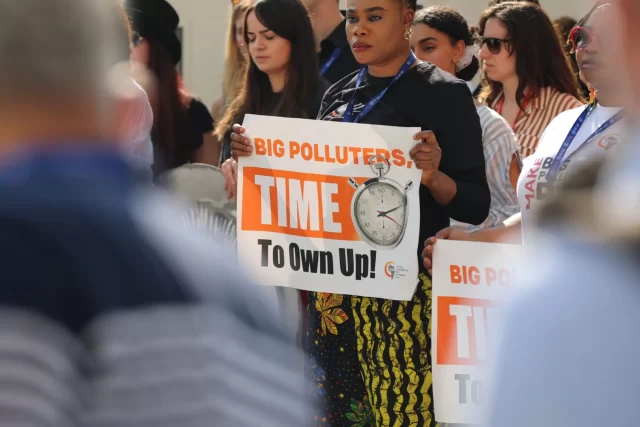By: Oforiwa Darko
Banners and placards that read “Fast Fair Forever”, “Don’t Gas Africa” , “Don’t Gas Asia”, “Just + Equitable, Fossil Fuel Phase Out, Stop Fueling the Fire” , “Stop pollution from fossil fuel extraction” were held by protesters who are demanding an end to the use of fossil fuels, the major cause of climate change across the globe.
These activists, who are mostly from Civil Society Organisations (CSOs), protested at the global climate summit, COP 28, in Dubai, UAE, while bemoaning the huge presence of fossil fuel lobbyists, outnumbering the delegation in Dubai.
“Currently, a record number of 2,456 lobbyists from the oil and gas industries are registered at COP 28,” some protesters said.
“It is time developed countries stepped up to phase OUT oil&gas&coal.”
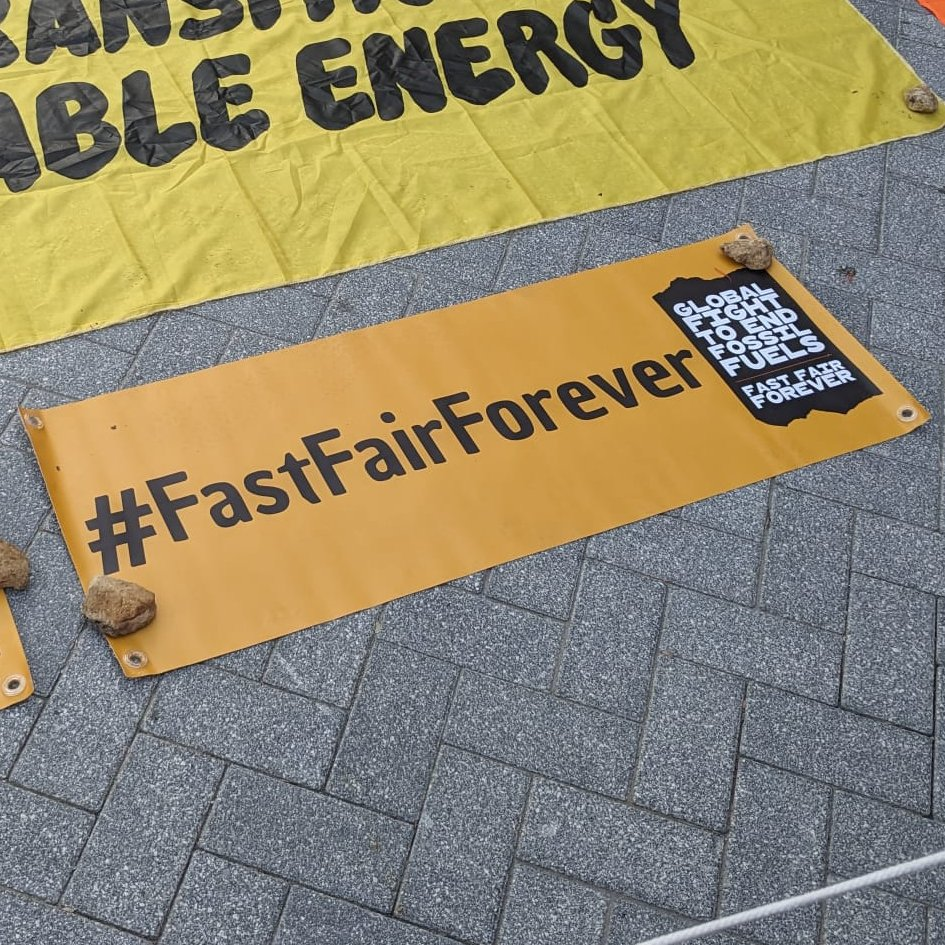
The protestors are calling on the west not to gas Africa and other vulnerable regions and ruin food security, including other sectors of economies, through pollution from fossil fuel extraction.
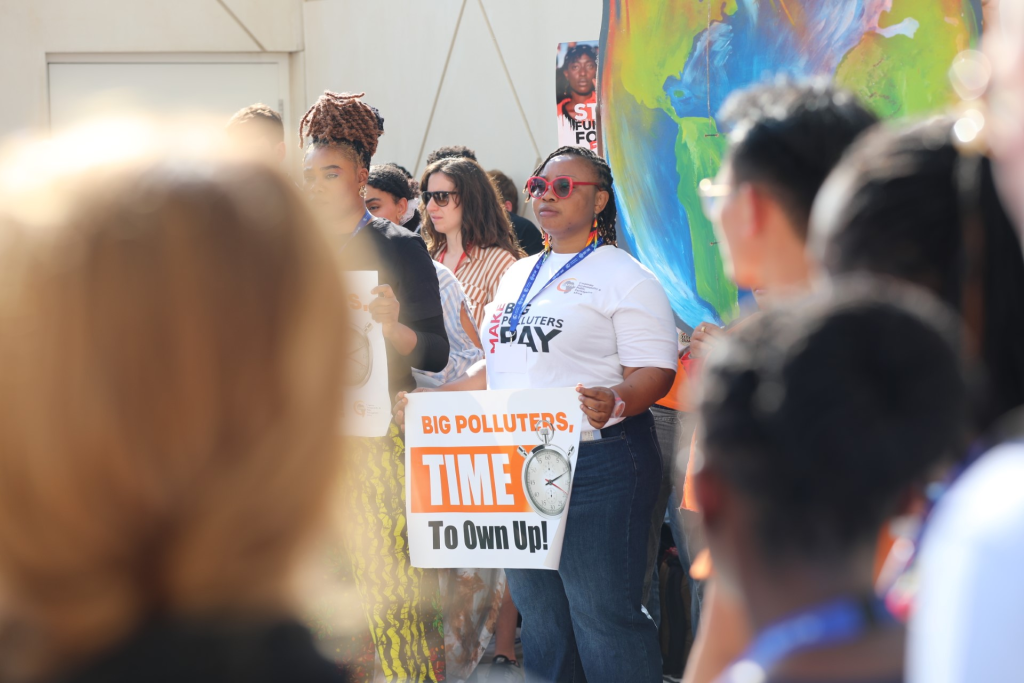
With only seven years of the global carbon budget remaining and fossil fuel states and companies continuing to increase exploration on most negotiating tables at COP 28, addressing fossil fuels is a critical component of effective action.
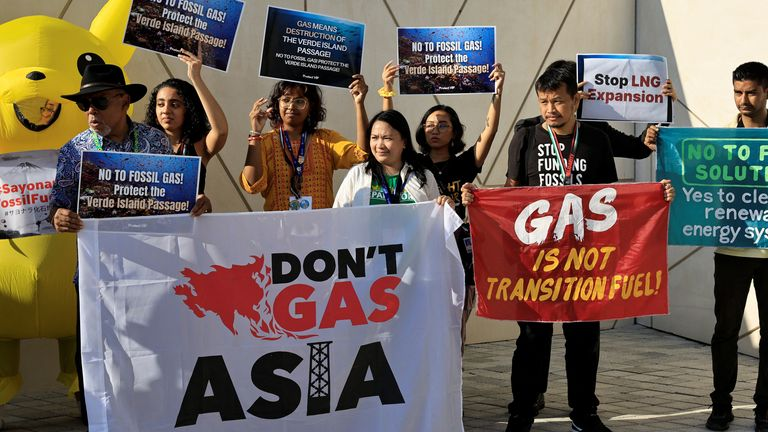
The annual Global Carbon Budget report shows that global emissions have risen 1.1% since 2022 and are 1.4% higher than before the pandemic. At current emissions level, the Global Carbon Budget team estimates a 50% chance that global warming will exceed 1.5°C consistently in about seven years. Given that 2023 has been the hottest year on record and that we are seeing the direct impact of that all over the world, there is need for urgent, decisive action.

The protests took place on Energy Day, while there are ongoing debates about fossil fuels, whether they should be phased out or phased down, whether the text should refer to abated or unabated. This issue is a central part of the discussions in Dubai.
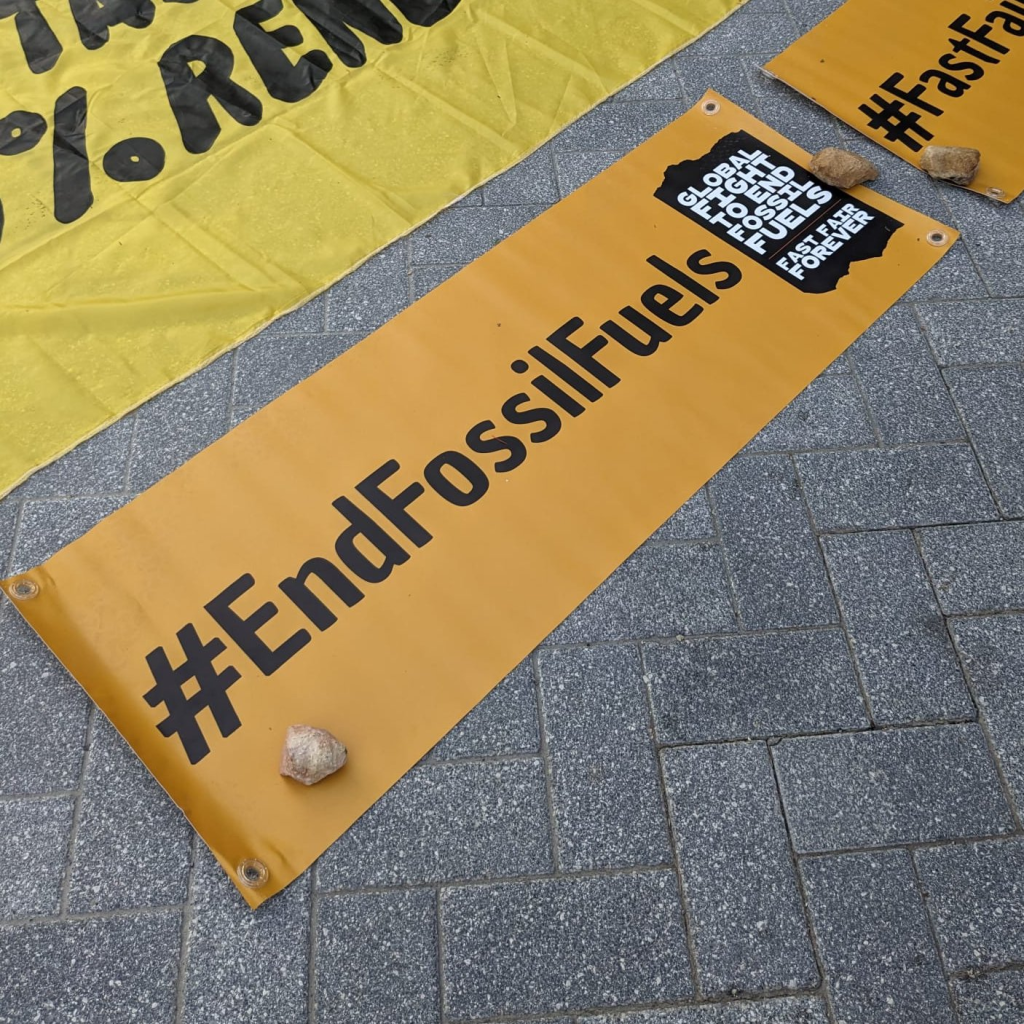
Meanwhile, climate negotiators are bent on dealing with the main cause of what is overheating the planet: fossil fuels.
As scientists, activists and United Nations officials repeatedly detailed how the world needs to phase out the use of coal, oil, and natural gas, negotiators on “Energy Transition Day” at COP 28 produced a new draft of what is expected to be the core document of the U.N. talks, called the Global Stocktake, but it did not give too much of a hint of what will be agreed upon when the session ends next week.

